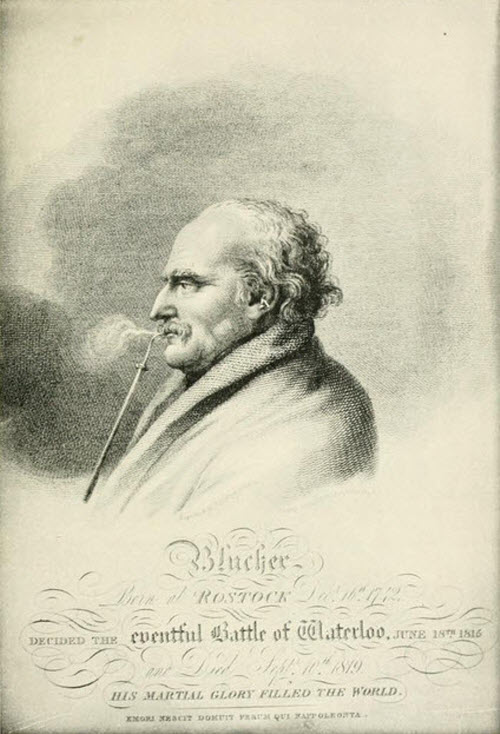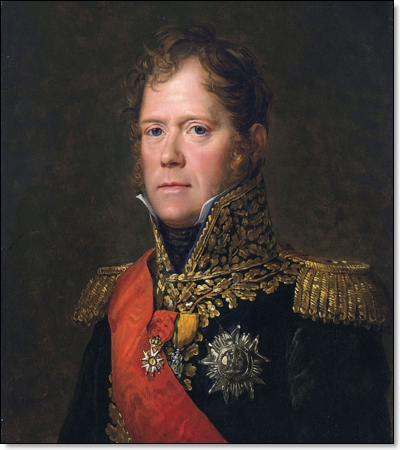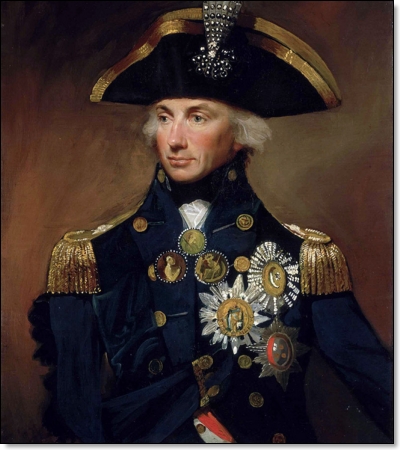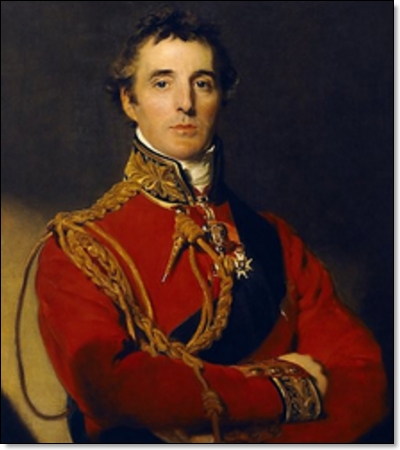General Blucher
The Real Hero of Waterloo
Gebhard Leberecht von Blücher (blooker), distinguished general, was born at Rostock, Germany, Dec. 16, 1742; died Sept. 12, 1819. At the early age of fourteen he secretly entered the Swedish service to serve against Frederick II. of Prussia, but in 1760 was taken prisoner, and after a year’s imprisonment entered the German military service and served Prussia during the later part of the Seven Years War.
Though a good officer, Blucher was also known for poor judgment and various excesses; as a result he was passed over for promotion to Major, leading him to write a rude letter of resignation to Frederick the Great. The king famously replied "Cavalry Captain von Blücher can go to the devil."
As a result, Blucher left the army for a time and settled down to farming. But with the French Revolution, Blucher re-entered Prussian service and saw action against the French throughout the Napoleonic wars which followed.
He commanded the forces against the French in the battles on the Rhine in 1793-94. In 1806 he fought with great vigor against the French at Auerstadt and gained minor victories, but was later taken prisoner. Soon after he was exchanged for the French general Victor and returned to the Prussian ranks. After the Peace of Tilsit had been concluded, he reorganized the department of war in Berlin and Konigsberg. Subsequently he became commander in chief of the Russian and Prussian corps. In the battles of Lutzen and Bautzen he fought with bravery and was awarded the order of Saint George by Emperor Alexander I. of Russia. His success in the Battle of Katzbach, in 1813, when he defeated Marshal McDonald, caused Frederick William III. to create him Prince of Wahlstadt and to give him an estate in Silesia.
In 1814 his army invaded France, and, though defeated in several engagements, he entered Paris in triumph. His service in the great campaigns of 1815 was especially valuable to the allied forces. On June 15 and 16 he was met by Napoleon at Ligny and was defeated, but on the 18th his skillful attack directed against Napoleon on the rear and flank decided the great Battle of Waterloo, and caused the final defeat of Napoleon. Owing to his energy, indefatigable exertion, and rapidity of movements he was nicknamed Marshal Vorworts ("Forward") by his troops. He was the recipient of many distinguished honors, and history fittingly designates him a model soldier and a skillful general. After the transportation of Napoleon to the island of Saint Helena, he retired to his estates of Krieblowitz, in Silesia, where he died.


.jpg)
